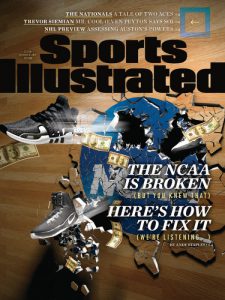Ah Cohort 27 (and your two Cohort 26 colleagues)….. You’ve been so fantastic in Emerging Issues for SMUMN’s Philanthropy and Development Program.
Hey out there in the world…What kind of emerging issues have you been observing, do you anticipate might become trends… (And absolutely do NOT NOT NOT say anything about Millennials or social media. I mean really…. Emerging? Not hardly!! Emerged. Past emerged. Life.)
So what were those 12 marvelous colleagues in PHDE 657 Emerging Issues writing about?
Things like:
- Can we really afford to close our borders?
- Building a new era of trust
- Girls in the Boy Scouts
- Trauma informed and feedback movement in the social sector
- Change coming in our diocese – or can we be agents of change?
- Apocalypse Soon: The need for standards
- Valuable recruits are following emerging issues
- Fundraising for the New NCAA (No one Can Abuse Athletes)
- Emerging into my new
- Instability and uncertainty in the development director role
- Throwing away the rubber stamp: a board self-assessment to drive growth
And how about that NCAA thing? That’s collegiate sports for those of you not into sports (like me)!!! And how about taking the knee in NFL games? So we had all this great wonderful back and forth in the online classroom, talking about race and racism and athletes. So very very cool!!
And the author of the final project for the “new NCAA” emailed me with the new Sports Illustrated cover. His email to me said, “This month’s cover of Sports Illustrated… The NCAA is Broken (but you knew that). Interesting stuff and sad the exploitation of young African American athletes.”

